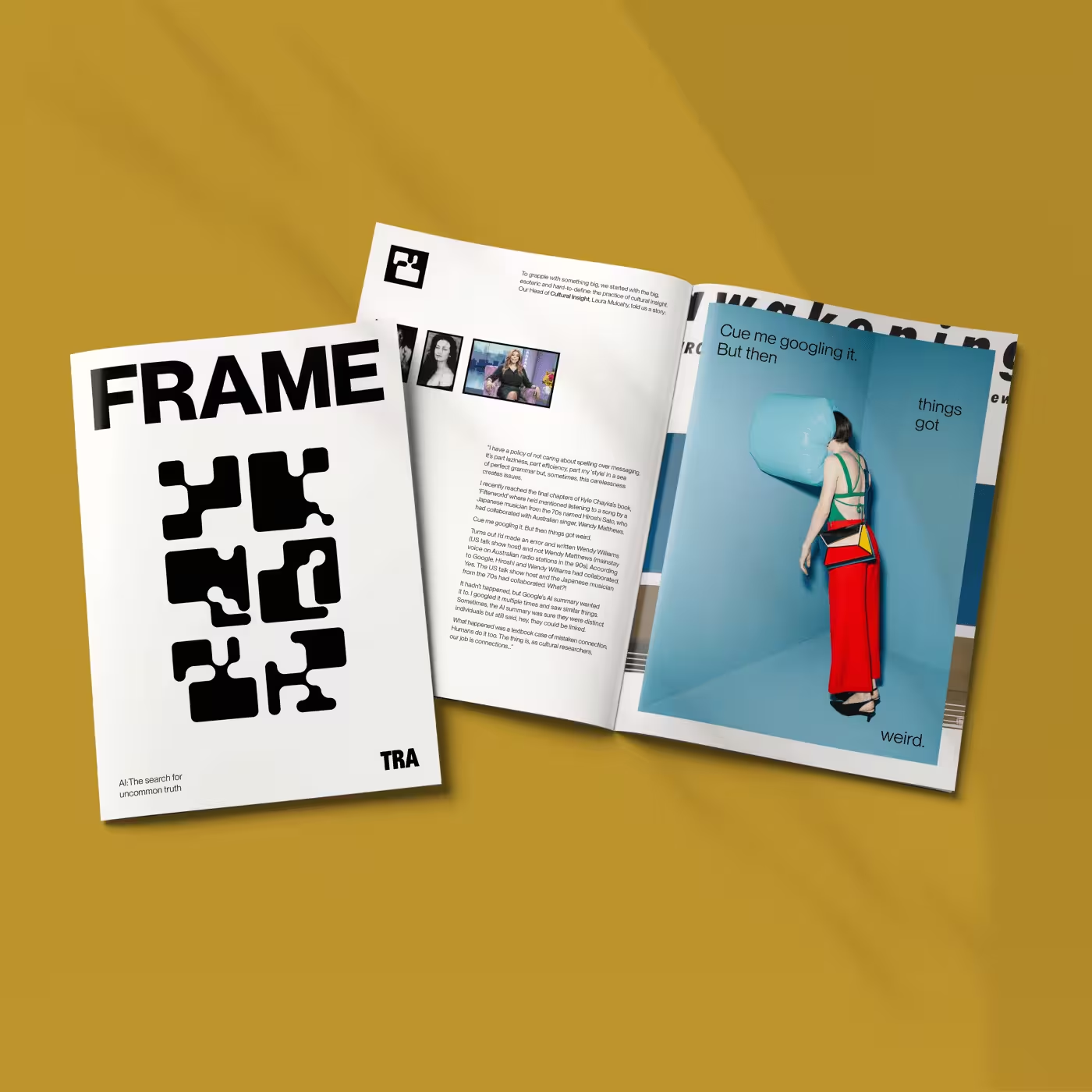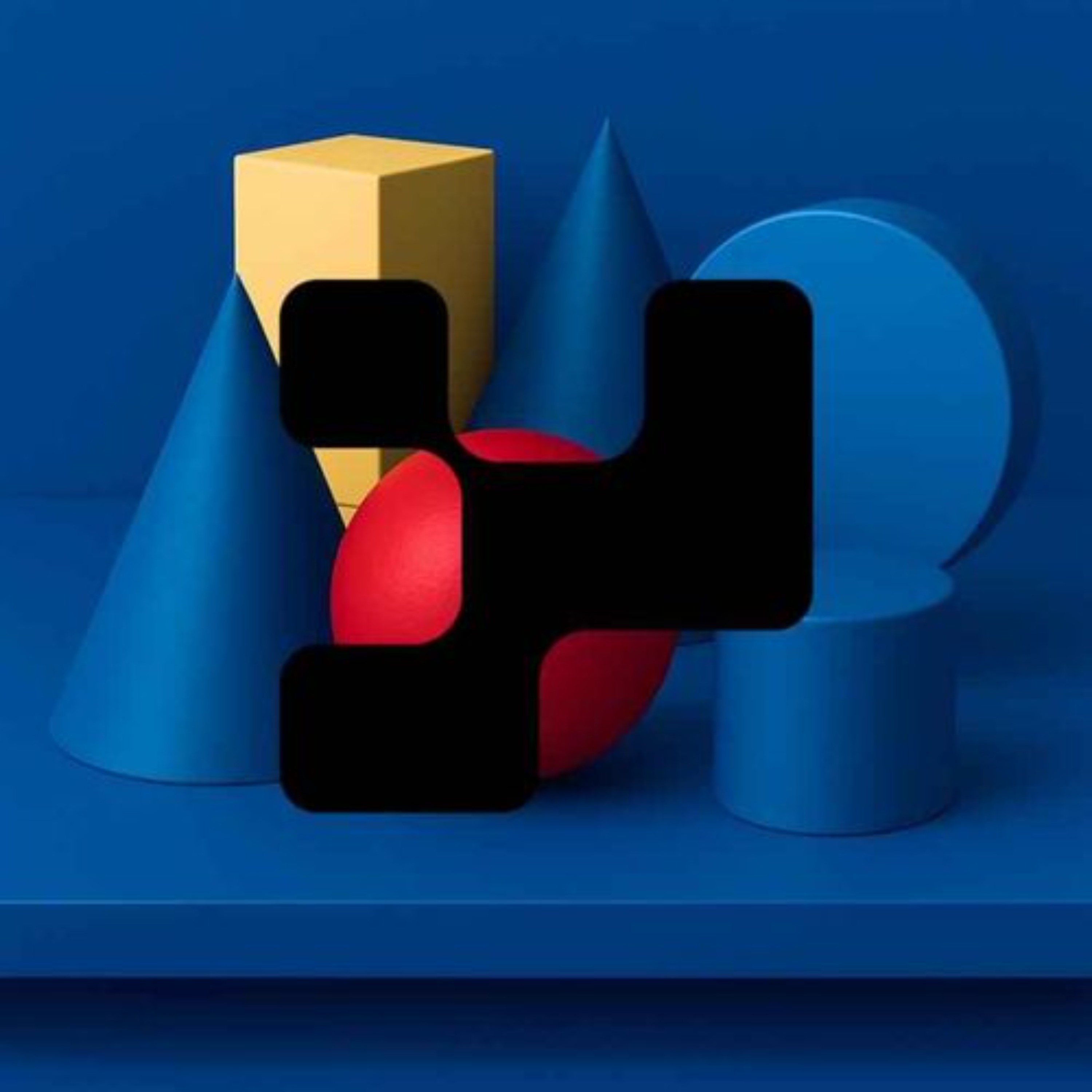Culture is a conversation
Culture influences the decisions we make, the way we receive messages and how we see brands. It inspires innovation and directs creative strategy. Getting it right can be gold, but getting it wrong? Potentially disastrous.
No one will ever ‘clock’ culture. That shouldn’t be the aim for organisations. Having a compass to guide and guardrail strategy in the context of culture, should be.
Culture is constantly changing. What’s relevant today might not be tomorrow, so staying ahead of it is a challenge. If the brands don’t make space to analyse what’s impacting, inspiring and important to customers, the groups they surround themselves with and the systems they live within, then they aren’t on the same page.
No one will ever ‘clock’ culture. That shouldn’t be the aim for organisations. Having a compass to guide and guardrail strategy in the context of culture, should be.
Culture is constantly changing. What’s relevant today might not be tomorrow, so staying ahead of it is a challenge. If the brands don’t make space to analyse what’s impacting, inspiring and important to customers, the groups they surround themselves with and the systems they live within, then they aren’t on the same page.
How does TRA apply the art of knowing people to culture?
Cultural Research is used to discover the past and present ‘meanings’ we share. It builds a radar for what is coming
We’re constantly scanning our online and offline worlds for clues about where culture is moving. These cultural signals are important in decoding patterns that clients can use to guide their strategy.
We never start from scratch. Our database of signals is curated by the brilliant TRA minds and stored in our wiki. We use our brains to analyse and strategise and we use our bots to organise and remember.
We’re constantly scanning our online and offline worlds for clues about where culture is moving. These cultural signals are important in decoding patterns that clients can use to guide their strategy.
We never start from scratch. Our database of signals is curated by the brilliant TRA minds and stored in our wiki. We use our brains to analyse and strategise and we use our bots to organise and remember.
Me. We. All.
Using a globally developed system, STEEP, we have created a framework that considers the human scale in relation to the bigger social, technological, economic, environmental and political system. It’s called ME WE ALL.
The first time we see a cultural signal, we ask ‘what scale is this happening at?’
The first time we see a cultural signal, we ask ‘what scale is this happening at?’
Me
Does is it affect individuals? Our physical, spiritual and social self?
We
Is it about relationships? Whether one to one or in groups, communities and neighbourhoods.
All
Is it about our systems? Nations, governments and institutions.
The framework is how we make sense of the world’s shared meaning. We use it to build every project – it allows us to efficiently jump into implications and strategies for clients.
Culture has different applications, so we apply it in different ways to solve organisational problems. We work across three cultural layers:
Culture has different applications, so we apply it in different ways to solve organisational problems. We work across three cultural layers:
Near-sight –
The signals of culture hidden in plain sight
The signals of culture hidden in plain sight
Using near sight, we can ensure clients are on code and find opportunities to be culturally relevant.
Foresight – Planning for foreseeable challenges
By exploring a specific focus more deeply, or working through known and unknown scenarios, we create guides and guardrails for strategy.
Farsight –
Longer-term strategies need a longer lens
Longer-term strategies need a longer lens
Anticipate and innovate untapped, future opportunities using a cultural compass.
Meet our lead

Laura Mulcahy
Head of Culture Practice
Laura Mulcahy is a cultural foresight researcher and strategist. Before TRA, Mulcahy spent nearly a decade at Nike USA, most recently as part of their Global Insights team where she spearheaded research projects across the US, Europe, and Asia, influencing Nike's design, brand, and business strategies. Laura’s circle of experts within TRA support cultural projects, feed the culTRA wiki and employ AI tools to manage the large quantities of unstructured data that is the basis of cultural analysis.
Contact Laura →Clients we have successful
partnerships with in this area.
partnerships with in this area.
LesMills
Kathmandu Australia
Trade Me
Lululemon
Bonds
Meridian Energy
Southern Cross
News Corp
The Co-operative Bank
Insights
There’s no point keeping our smarts locked away. Our content hub ‘Insights’ shares the ideas, frameworks and tools that we utilise in our work.




%20(1).jpg)